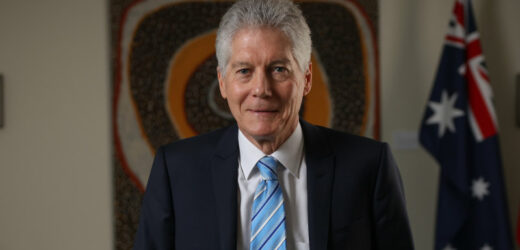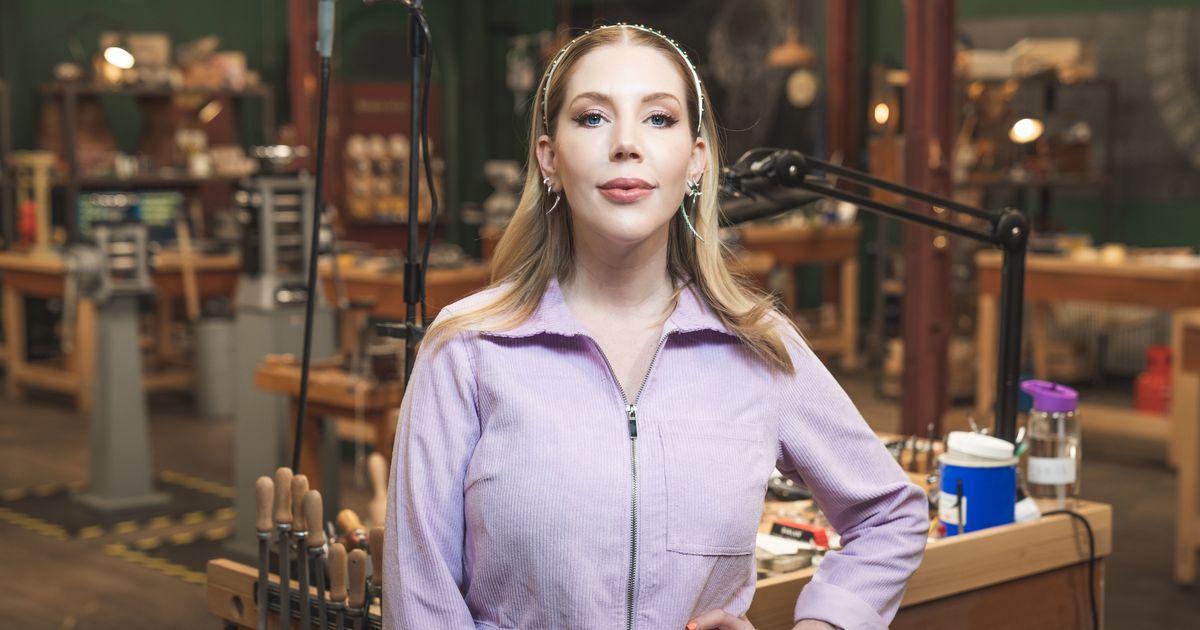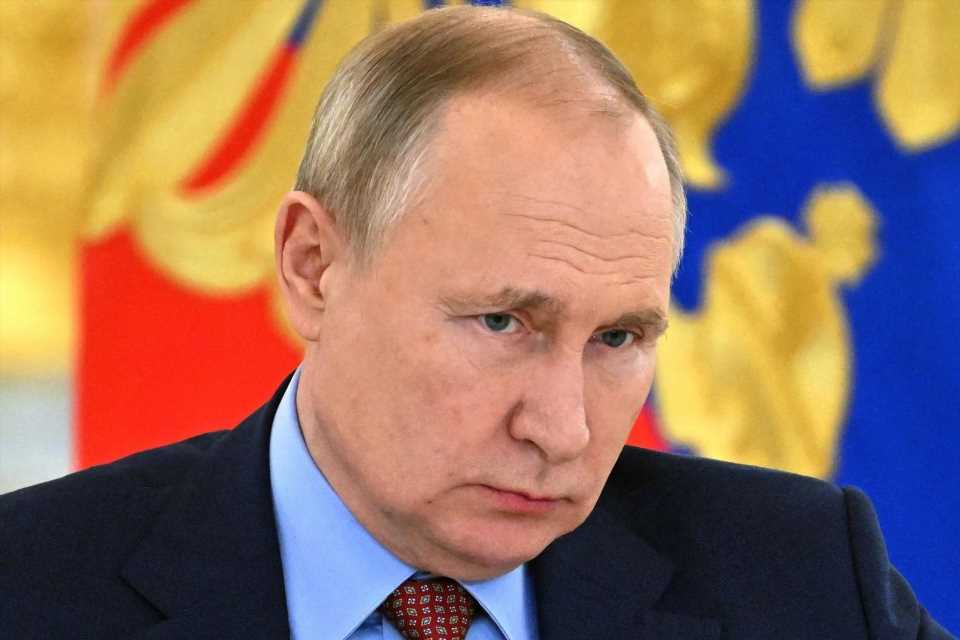London: Stephen Smith’s phone call last year with his old Labor mate, Prime Minister Anthony Albanese, was straight to the point. Albanese needed him to take up Australia’s oldest diplomatic posting as the 26th high commissioner to London.
“He gave me a one word brief,” Smith, whose voice is somewhat scratchy as he recovers from a nasty bout of COVID, said in London this week. “Security.”
Stephen Smith, Australia’s high commissioner to Britain.Credit:Hollie Adams
A similar conversation took place with Penny Wong, who as foreign minister now holds Smith’s old job. That was another one-word brief: “AUKUS”.
It’s an important statement about how the new federal government sees Britain – and the world – in these times. Australia and Britain have long held a significant relationship underpinned by a shared heritage, common values and strong people-to-people links. But now, for perhaps the first time since Stanley Bruce’s lengthy stint from 1932 to 1945, the top diplomatic role is viewed as a vital security post.
“What’s transformed for the UK is, like pretty much every European country, the UK now has an Indo-Pacific policy,” Smith says.
“And [it] now sees things through the lens of the Indo-Pacific.
Stephen Smith had barely got his feet under the desk in January when the AUKUS subs deal was signed.Credit:Hollie Adams
“And when the prime minister and foreign minister talk to me in terms of security and AUKUS, they’re really talking Indo-Pacific security. We want to have an Indo-Pacific where security is stable.”
The 67-year-old Smith joins a long list of Canberra heavyweights to take up residence at Stoke Lodge, the stately two-storey, 20-room, circa 1838 Georgian style home (valued at about $52 million) near Hyde Park, provided for Australia’s most senior diplomat in London.
Four of Australia’s early prime ministers have served in the role, five leaders of the opposition, a premier and several more cabinet ministers. But it’s easy to forget that Smith, who nowadays presents as a rather bookish technocrat with a shock of white hair and a slender frame, spent more than two decades as a key player in the cut-and-thrust of Labor politics in Canberra, also holding the defence and trade portfolios.
As part of a group famously known as The Roosters, he – along with former treasurer Wayne Swan and Senate powerbroker Stephen Conroy – were leading agitators in several rather bruising leadership battles in the Beazley, Crean, Latham, Beazley, Rudd, Gillard and Rudd eras.
Stephen Smith and then-prime minister Kevin Rudd.Credit:Bohdan Warchomij
More recently he attempted a disastrous bid to oust West Australian Labor leader Mark McGowan from his role from outside of state parliament, famously declaring he thought McGowan was incapable of winning an election.
Long before that, he was a key player in a coup that rolled Bob Hawke and delivered Australia’s top job to his old boss, Paul Keating.
It’s a delicious irony that Smith is now a leading player in AUKUS – the contentious nuclear submarine agreement between Australia, Britain and the United States – at the same time as Keating is making Fleet Street headlines labelling the $368 billion plan as the “worst deal in all history”, “seriously unwise” and “the worst international decision”.
But Smith, like Albanese and other senior government figures, won’t bite when it comes to his old mentor’s views.
“I’m not going to get into a running commentary about who said what to whom over AUKUS,” he says. “I don’t regard public interventions by former prime ministers as doing anything other than underlying the fact that we’ve come from a robust democracy.”
We gently prod him again on whether Keating’s intervention could damage public trust in the project both at home or abroad.
“To me the key points of reference are what is the Australian government policy,” he says. “And in the context of AUKUS, what is the alternative Australian government’s policy – the opposition’s policy, which is very strong support … just as in the UK.”
Sure, we say, but people like former Labor foreign minister Bob Carr and former cabinet ministers Peter Garrett and Kim Carr say branch members are turning against it. Keating himself, insisted the branches were against it.
But Smith says otherwise.
“People will have their own opinions,” he replies. “But whatever position they occupy or have previously occupied, the anecdotal polling that I’ve seen vis-a-vis AUKUS from the Australian community has been very supportive – and 70 per cent in favour of the US alliance.”
There is perhaps the tiniest of hints dropped about what, deep down, he thinks about Keating’s outburst. It’s rather subtle but still pointed. His political wilderness years were largely spent in academia and at think tanks, as a professor of public international law at the University of Western Australia, chairman of the UWA Public Policy Institute and on the board of the Perth USAsia Centre.
“Things have changed quite dramatically in strategic circumstances since I was a minister, so I think it is very important – sort of in inverted commas – to ‘keep up with things’ if you have an interest in them,” Smith says, crediting his role as co-author of Australia’s Defence Strategic Review with preparing him for the role. The review, written with former head of the Defence Force Angus Houston, in close consultation with the government, is due for release soon.
‘When the prime minister and foreign minister talk to me in terms of security and AUKUS, they’re really talking Indo-Pacific security.’
Smith, who also wants to strengthen co-operation with Britain on renewable energy investment, met King Charles at Buckingham Palace last month. He plays a straight bat to those questions, too, respecting long-standing protocols that revealing one’s conversations with a monarch is frowned on.
“I think I can say that, as you might expect, he was very friendly, very warm, very engaging, and keenly interested in all matters Australian,” he said. “As we know, he has a history of a relationship with Australia and schooling and living in Australia. So, he’s keenly interested in all aspects of Australian society.”
Later Smith drops another clue that the planned referendum for an Indigenous Voice has been a key part of his conversations from “the highest level down” since arriving. But not so much a republic, regarding which he says there’s, perversely, more interest in Australia about what a republic would mean for the relationship than in Britain.
“Wherever I go in the UK, there’s a shrug of the shoulders, which is ‘Well, if you change your constitutional relationship with us, it’s entirely a matter for you. Life will go on as you know; you’ll still be Australia, you’ll still be in the Commonwealth, you’ll still be in AUKUS,’ ” he says.
Another old political relationship that has been revived is with the man who once took his job as foreign minister, Kevin Rudd.
In his memoir, Not for the Faint-hearted, the former prime minister and now ambassador to the United States, wrote that Smith – a factional enemy – was “the most ice-cold politician I had ever met”. He said Smith shared Swan’s deep cynicism for the “business of politics” and was so neat that he would be “discombobulated if anyone disturbed the plastic folders of papers that made up his universe”.
But Rudd sounded out Smith when he was in London last month, putting aside a sketchy history to ensure they were in lock-step when it came to delivering AUKUS.
“He reached out because it made sense for the two of us to have a conversation because there will be connections and interlinkages with what we do,” Smith says. He says the pair didn’t “chat about old times” but how they could work smoothly to ensure AUKUS worked between Canberra, Washington and London.
What advice did Smith give Rudd about his new role?
“I’ve never chosen to give Dr Rudd advice as to how he should conduct himself,” he says.
“My relationship with Kevin, in terms of policy, has always been professional. So, we will have a warm and professional relationship as we discharge our respective obligations in London and Washington.”
Smith himself sought out advice from several of his predecessors, including Liberal counterparts George Brandis and Alexander Downer, before he took the role. He admits he received good advice. What was the most salient?
“If you’re not careful, you’ll spend all of your time doing all of the things which look meaningful. But did I change anything which affected a national interest outcome for Australia or was I just managing things that were going to occur anyway?
“I think that’s the real lesson. You’ve got to have a laser-like focus on what are our strategic objectives”
Get a note directly from our foreign correspondents on what’s making headlines around the world. Sign up for the weekly What in the World newsletter here.
Most Viewed in World
From our partners
Source: Read Full Article





